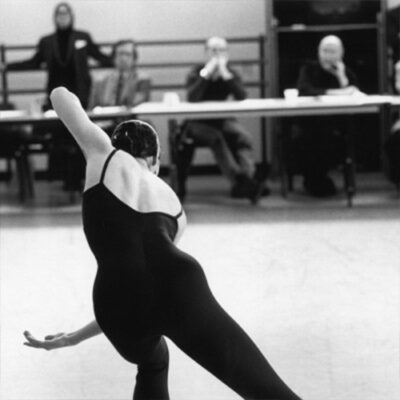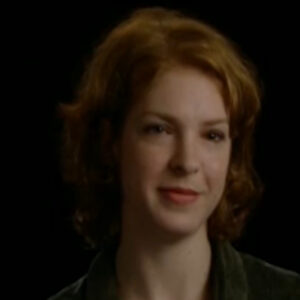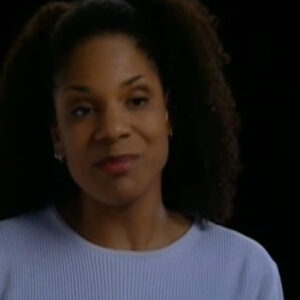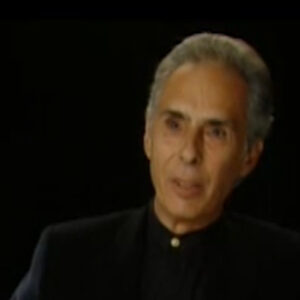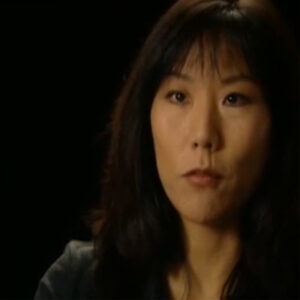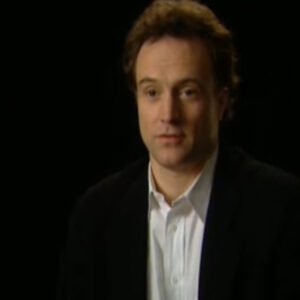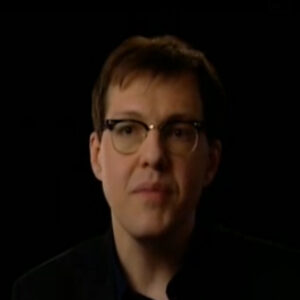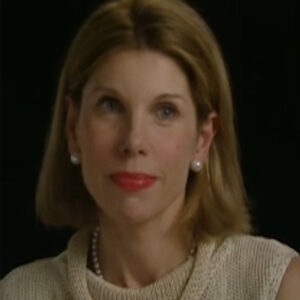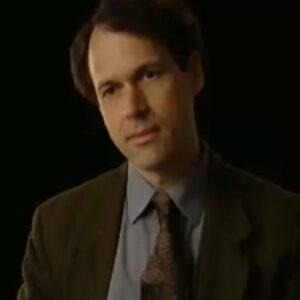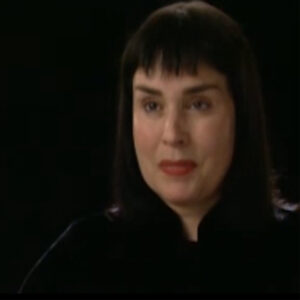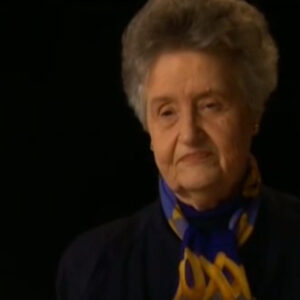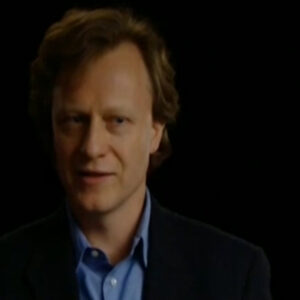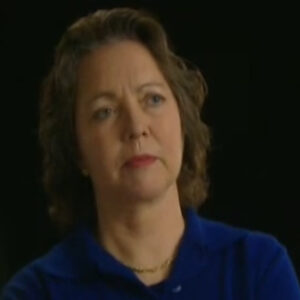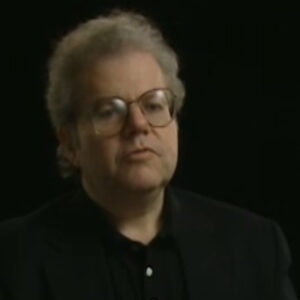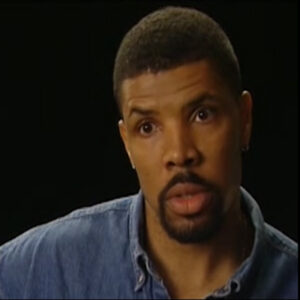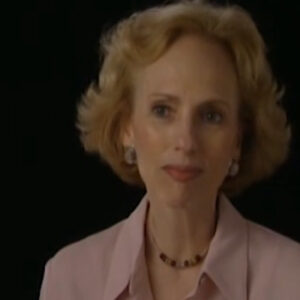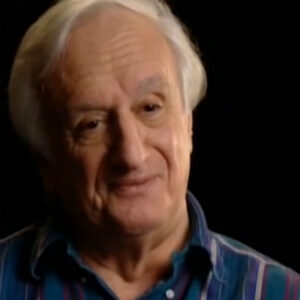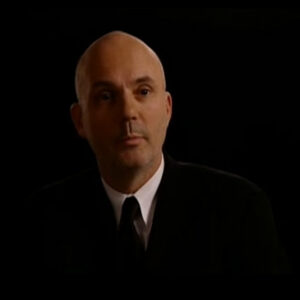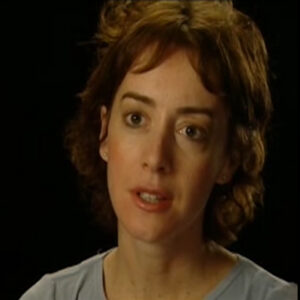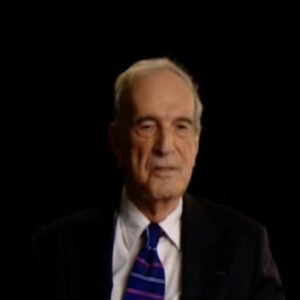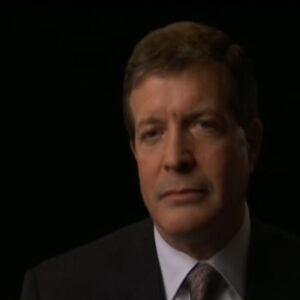Speaker Tutor was one of the most complex people I’ve ever met. I mean, before finally, when he had moved me from from the Metropolitan Opera into American Ballet Theatre and we were doing a revival of his pillar of fire. Before the performance, he would just destroy you. Tell you how you didn’t know anything about his ballet, that you didn’t know how to perform, that you were overacting, that you didn’t need to act, that you were. And you got to the performance. And when it was so free and it got a good review, he said it was so important I did that to you because it got you to the core of who you are. I always thought it was also in case it didn’t go well. It would be our fault, not his. I think all those things were going on at the same time, too, as a very frightened man.
Speaker And fear turns to anger and to do we get angry? When he got frightened.
Speaker Well, as you were aware of how he were asked to Martha Hill tutor this sort of Peter met and sort of what became the Balanchine link in Kingston opposition, that sort of in a way, must, you know, when when when they when they move down to are you aware at all when they moved out? OK, we will talk about it, because when they moved to Lincoln Center, met and signed a contract with Daljeet behind Martha Hill’s back, very creative. And Tooner was somewhat squelched out in favor of a Baljeet, which didn’t end up happening. Right? It didn’t. It didn’t happen, right? No. And I think that Peter Bennett just was sort of double dealing. But but it seems that Martha Hill was often in. In struggles admitted that you were shot one time. Oh, sure. Yeah. I mean, what was your sense of him? Was he someone that came into your orbit as a dancer?
Speaker Actually, William Schumann was was way up there, way beyond Martha Hill and a kind of heady atmosphere of composer, director and and not in our day to day life. We certainly knew his music tutor had used his music for a ballet called Undertow and Difficult, interesting ballet. But it was really Martha that we dealt with on a daily basis. And she she juggled these people. I mean, these huge, huge people who might have had rather large egos and who felt a tremendous rivalry as much as they greeted each other in the hallways.
Speaker I think certainly Lymon and Graham, there was no love lost between them.
Speaker But somehow Tudor and Lee Limonov seem to be those two great bald headed guys seem to be able to pass the time of day quite comfortably, although it was always tremendously sarcastic about everything and about the dancers. And in class, you sort of cringed as he walked past you. And, you know, you heard him say to somebody else, your leg seems to go up quite easily today. What were you doing last night?
Speaker And she would turn bright red, you know, at these sort of sexual innuendos. He was always dropping all over the place.
Speaker Martha Hill, criminy. And plus, I’ve seen these lovely photographs of her and her little but on the side.
Speaker Yeah, we always win whenever we talk to our Martha. Yeah, we all did. She always had a bun on the side of her head. So we say Martha said, what was her persona?
Speaker You know, I sort of see her as like something out of sort of a sellenger book to me. People talked about sort of the ladies taking out their hatboxes and dancing.
Speaker You know, for my lord, I mean, she was I mean, for and also I’m interested in something, although it’s not your perspective necessarily.
Speaker But if you are aware of what it was like for the African-American dancers at that time, they were in this very mean limbo.
Speaker Must’ve been an interesting story for them. Some of the, you know, Robert Carlin, some of the sort of the black dancers with passage, they said it was it was hard. They were very.
Speaker A world that wasn’t understanding them so well.
Speaker I have no awareness of any kind of cultural diversity here. Juilliard at that point, I mean, I come from the High School of Performing Arts, where Polly Haina and Hymie Rogers and Bill Thompson and we had, you know, and there were lots of black dancers and Hispanic dancers.
Speaker It. Certainly at Juilliard at that point, it didn’t seem to be an issue. I mean, there was no movement toward that. And as Martha Martha Hale was an anomaly in ways.
Speaker I mean, she she seems like she should be running bridge parties in the suburbs. And yet here she was placating and getting to work out of head choreography, out of, you know, three or four of the most interesting choreographers in the world or in the history of dance. And she managed somehow to keep these people working and. Not choking each other to death. I mean, it was quite amazing how she juggled all of these very big people, these huge egos, and kept them all there and working and dedicated to Juilliard.
Speaker And Penha also mentioned and I’m wondering what your thoughts are, if that is it. Everybody sit very young and impressionable still now. I mean, everybody is very young. And Penha mentioned that.
Speaker But also, Martha brought to her life. This would be an interesting novel for you to read this would that that these were people who, you know, knew an incredible amount of death, but also the incredible amount about a lot of things and were very generous in encouraging people. To think about a lot of different things as a way of feeding their dads, if you will. What was your experience in the.
Speaker I know he’s felt that the teachers at Juilliard were also mentors, that they weren’t just teachers.
Speaker I mean, certainly for me, you know, marchin new Anvar talk and all of the things that tutor taught me about the books that he gave me to read Zen and the Art of Archery. I mean I mean, in his early explorations, he finally moved to the Zendo. He created the Zen Institute in New York, actually created it because of his own interest in it. He took me to the Roshi. We sat and meditated together. He took me to a yoga teacher so that I’d have some knowledge of what was going on in half a yoga. And this was way beyond teaching you how to do a flea, a or a Tom Do and Leamon as well.
Speaker I mean, these were artists. These were well-rounded artists who had a broad knowledge. And we’re always talking to you about the other art forms. And what was going on and what you should be seeing. It’s become a better hardest.
Speaker And when you’re there today, has it seem the same when it comes to.
Speaker Certainly today it seems very different. I mean, everyone’s directed the deaths and not at an individual discipline, which is a different focus from the way it was. As I said, the synthesis has taken place and these youngsters are learning how to reproduce movement by not concentrating specifically on ballet. And the idea of being the swan, queen or prince, a new kind of dancer, is being created. That’s that’s a dancer that can be used, you know, in contemporary ballet companies that young choreographers are going to want to work with. That feels very different.
Speaker And do you think that Ben is doing a lot more thinking than maybe it was done in the past, about where will these dancers go? What will their options be? How can I.
Speaker Direct them to company to that. That, in a way, you really are one of its greatest strengths. Is that through all of this history, it’s often a credible source of networking to colleagues that you met there, that Shelly said that Ben knows.
Speaker It’s like that in a way. Giuliani is great for that as well. It’s a great place to be because everyone’s been there and everyone knows everybody, actually.
Speaker Fifty years ago. Forty five years ago, when I was in school, the school wasn’t really about placing its dancers. I guess there might have been a sense that these dances were going to find their place to work in a modern dance company and perhaps in a ballet company. But that didn’t seem to focus at all. And now, of course, Ben has has changed that. I mean, he wants to make sure that his dancers are taking the next step into the appropriate company at the appropriate time. And that’s very good. Ben has tremendous contacts in the field. You know, he’s been around as long as I have. Which is, you know, 45, 50 years. And he’s going to be able to find the right match. And he knows he sees everything. We live in the same building at Lincoln Center. So I see him. And every time I see him going out, he’s always going to a dance performance. So he knows where these deficits really belong. And he’s able to call that that company or that person choreographer and say, you know, I think I have the right person for you. I think this person would be wonderful in your company.
Speaker And he’s there both the fear and the.
Speaker And the great things that come out of that kind of trust.
Speaker I mean, should of knowing that Ben does know the right or people constantly, still everybody has to struggle for their individuality. I mean, I know we’re people worry about favoritism if you’re not in the.
Speaker It’s hard. I mean, you have to it’s competitive, but you’re there now. Is it in a way that it wasn’t before? Really? Yes.
Speaker I think dancers always been competitive. I think we are always thinking of, you know, where we’re going and what we’re going to do and how we’re going to get ahead. And I’m not sure that that with more opportunity. I mean, what used to be called the regional ballet company, some people now prefer to call the national ballet companies. Got this. A lot of them. There are a lot of chances to dance at all levels. There are many, many individual modern dance companies out there. And I think tremendous opportunity for the young dancer. There’s still no salary that is paid but a living wage. But, you know, there are chances now and I think. I think for Julie, our denser however they may be, you know, that group of companies that wants the eclectic kind of dancer. And there may be a competitive feeling.
Speaker Excellence or anything critical, important from your time story moment thing that we haven’t said?
Speaker There’s no doubt in my mind that I’m sitting here today talking to you about this, because Julie was the kind of place that it was. I mean, it changed my life in the sense that here I was a person who believes that we’re going to do one thing. And when I got to these masters to tutor and Leone, that whole experience changed who I was and what I did in my career. And for that, I guess I’ll always be grateful.

